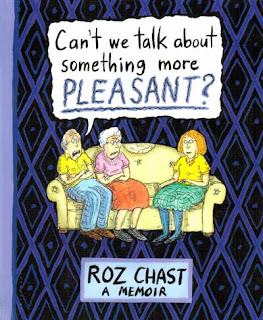 |
| A page from Sattouf's album. The family arrives in the father's home village in Syria. |
Riad Sattouf’s (born 1978) autobiographical comic L’Arabe du Futur (The Arab of Future) was a great hit in France and has sold several hundred thousand copies by now. The second album is already out in France and an English version of the first book will be available in October 2015 (Barnes and Nobles, UK). A Finnish version (WSOY) is already in the shops.
Sattouf tells the story of his childhood in France, Libya, and Syria in the Eighties. His mother is French, his father a French-educated Syrian professor who takes up teaching jobs in Libya and Syria. From France the family moves first to Libya, then to the father's home town, Homs, in Syria. The father has great hopes for the future of the then prevailing Pan-Arabic movement and works under two dictators (Gaddafi and Hafez-al-Assad). Sattouf is very young and sticks out in both countries, as he has blond hair.
Sattouf tells his story with both robust and gentle humour and manages to portray the life of a young boy in a strange environment in a believable way.
Autobiographical comics like these do much more for understanding between cultures than any regular campaign material against xenophobia and anti-racism.
Read more about the album: http://www.allary-editions.fr/publication/larabe-du-futur/ (in French)
Posted by Leif Packalen
 |
| The album cover |









